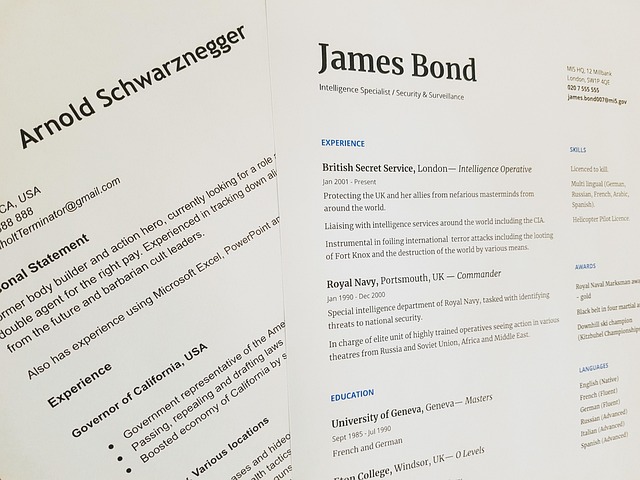Training Paths for Aviation Careers in USA
The aviation industry in the United States offers diverse career opportunities for individuals seeking stable, well-paying jobs in a dynamic field. From airport operations to aircraft maintenance, aviation training programs provide the specialized skills needed to enter this growing sector. Understanding what airport training entails for new aviation staff and the various pathways available can help aspiring professionals make informed decisions about their career trajectory in this essential industry.

What is Airport Training for New Aviation Staff?
Airport training for new aviation staff encompasses comprehensive programs designed to prepare workers for various roles within airport operations and the broader aviation industry. These training programs typically combine classroom instruction with hands-on practical experience, covering essential topics such as safety protocols, security procedures, customer service standards, and regulatory compliance. The Federal Aviation Administration (FAA) sets many of the training standards, ensuring consistency across the industry.
New staff members learn about airport layout, emergency procedures, baggage handling systems, and communication protocols. Training duration varies depending on the specific role, ranging from several weeks for basic positions to months or even years for more technical roles like air traffic control or aircraft maintenance.
What Skills Are Taught in Aviation Job Training?
Aviation job training programs focus on developing both technical and soft skills essential for success in the industry. Technical skills include understanding aviation regulations, operating specialized equipment, performing safety inspections, and using industry-specific software systems. Students learn about aircraft systems, navigation procedures, weather interpretation, and maintenance protocols depending on their chosen career path.
Soft skills emphasized in training include effective communication, problem-solving under pressure, attention to detail, and teamwork. These programs also stress the importance of following strict safety protocols and maintaining situational awareness. Many training programs incorporate conflict resolution and customer service skills, as aviation professionals frequently interact with passengers and colleagues in high-stress situations.
What Roles Are Available After Aviation Training?
Aviation training opens doors to numerous career opportunities across different sectors of the industry. Ground operations roles include baggage handlers, customer service representatives, gate agents, and ramp supervisors. More technical positions include aircraft mechanics, avionics technicians, and quality assurance inspectors.
Air traffic controllers manage aircraft movements, while flight dispatchers coordinate flight planning and monitoring. Airport security personnel ensure passenger and facility safety, and cargo specialists handle freight operations. Administrative roles such as airport operations coordinators, safety managers, and training supervisors also require specialized aviation knowledge. Each role offers different advancement opportunities and salary ranges based on experience and additional certifications.
How to Enter the Aviation Industry with Training?
Entering the aviation industry requires selecting the appropriate training program based on your career goals and interests. Many community colleges offer aviation programs, while specialized aviation schools provide focused training for specific roles. Some employers offer on-the-job training programs for entry-level positions, making it possible to earn while learning.
Prospective students should research program accreditation, job placement rates, and industry partnerships when selecting training providers. Many programs require background checks and medical examinations due to security and safety requirements. Networking with industry professionals and attending job fairs can provide valuable connections and insights into available opportunities.
Unique Aviation Training Insights in the United States
The United States aviation industry is experiencing significant growth, with the Bureau of Labor Statistics projecting above-average job growth for many aviation occupations through 2032. Several states have developed specialized aviation training hubs, including Florida, Texas, and Arizona, which benefit from favorable weather conditions for flight training year-round.
Many aviation training programs now incorporate advanced simulation technology, allowing students to practice complex scenarios safely. The industry has also embraced diversity initiatives, actively recruiting women and minorities to address workforce shortages. Veterans often find their military experience valuable in aviation careers, and many training programs offer accelerated pathways for those with relevant military backgrounds.
Aviation Training Costs and Provider Comparison
Aviation training costs vary significantly depending on the program type and duration. Understanding these investments helps prospective students plan their education financing effectively.
| Training Program | Provider Examples | Cost Estimation | Duration |
|---|---|---|---|
| Aircraft Maintenance Technology | Embry-Riddle, Spartan College | $15,000-$40,000 | 18-24 months |
| Air Traffic Control | FAA Academy, Community Colleges | $5,000-$20,000 | 3-18 months |
| Pilot Training (Commercial) | ATP Flight School, CAE | $80,000-$200,000 | 12-24 months |
| Airport Operations | Community Colleges, Vaughn College | $8,000-$25,000 | 6-18 months |
| Aviation Security | Local Training Centers | $2,000-$8,000 | 2-6 weeks |
Prices, rates, or cost estimates mentioned in this article are based on the latest available information but may change over time. Independent research is advised before making financial decisions.
Many training programs offer financial aid options, including federal student loans, grants, and scholarship opportunities. Some employers provide tuition reimbursement or apprenticeship programs that combine work experience with education. Veterans can often use GI Bill benefits for aviation training, significantly reducing out-of-pocket costs.
The aviation industry continues to evolve with technological advances and changing transportation needs, making proper training essential for career success. Whether pursuing technical roles or operational positions, comprehensive training provides the foundation for a rewarding career in this vital industry. With multiple pathways available and strong job growth projections, aviation training represents a solid investment in professional development for those interested in joining this dynamic field.




